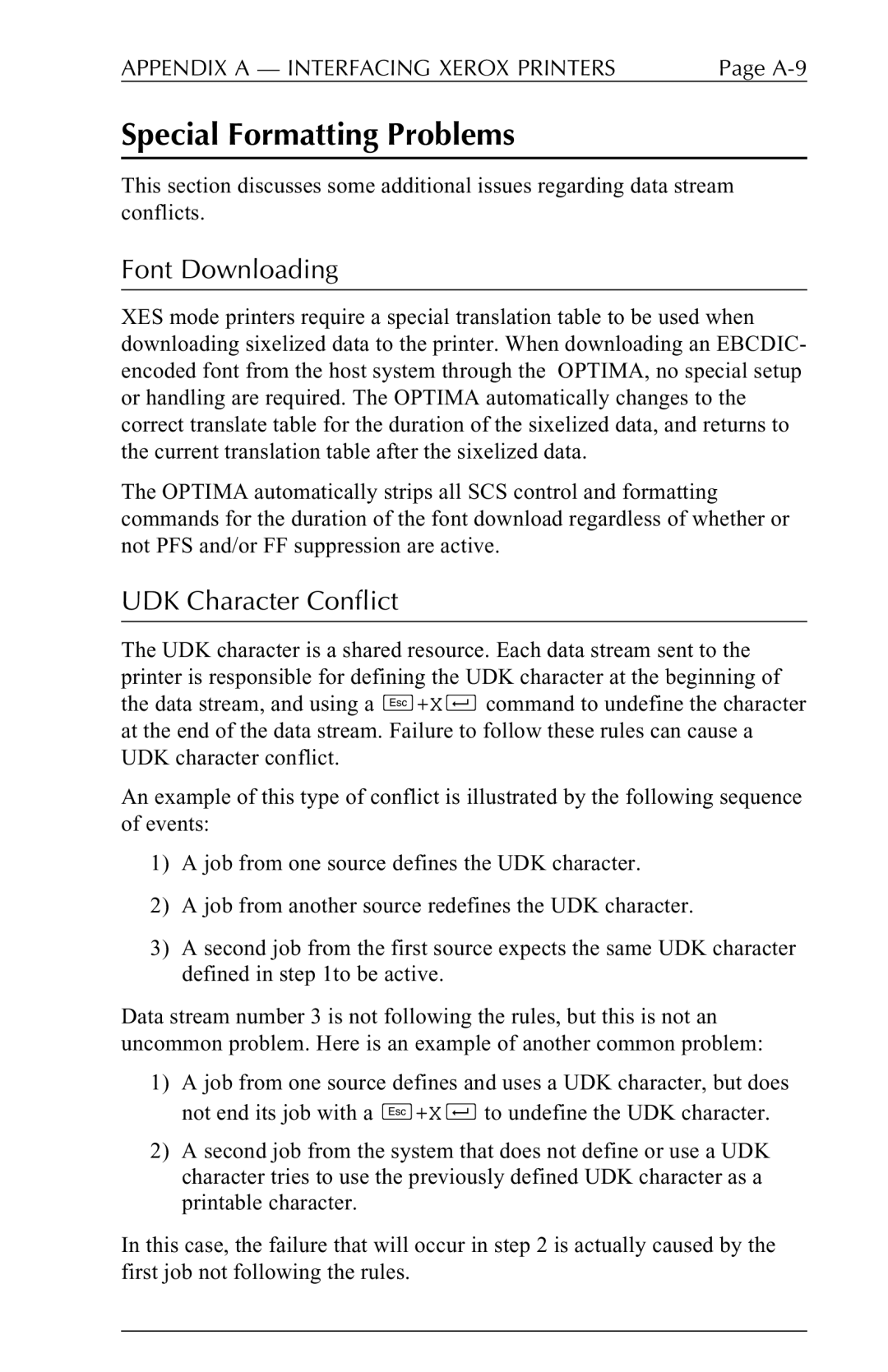
APPENDIX A — INTERFACING XEROX PRINTERS | Page |
Special Formatting Problems
This section discusses some additional issues regarding data stream conflicts.
Font Downloading
XES mode printers require a special translation table to be used when downloading sixelized data to the printer. When downloading an EBCDIC- encoded font from the host system through the OPTIMA, no special setup or handling are required. The OPTIMA automatically changes to the correct translate table for the duration of the sixelized data, and returns to the current translation table after the sixelized data.
The OPTIMA automatically strips all SCS control and formatting commands for the duration of the font download regardless of whether or not PFS and/or FF suppression are active.
UDK Character Conflict
The UDK character is a shared resource. Each data stream sent to the printer is responsible for defining the UDK character at the beginning of the data stream, and using a s+Xd command to undefine the character at the end of the data stream. Failure to follow these rules can cause a UDK character conflict.
An example of this type of conflict is illustrated by the following sequence of events:
1)A job from one source defines the UDK character.
2)A job from another source redefines the UDK character.
3)A second job from the first source expects the same UDK character defined in step 1to be active.
Data stream number 3 is not following the rules, but this is not an uncommon problem. Here is an example of another common problem:
1)A job from one source defines and uses a UDK character, but does not end its job with a s+Xd to undefine the UDK character.
2)A second job from the system that does not define or use a UDK character tries to use the previously defined UDK character as a printable character.
In this case, the failure that will occur in step 2 is actually caused by the first job not following the rules.
